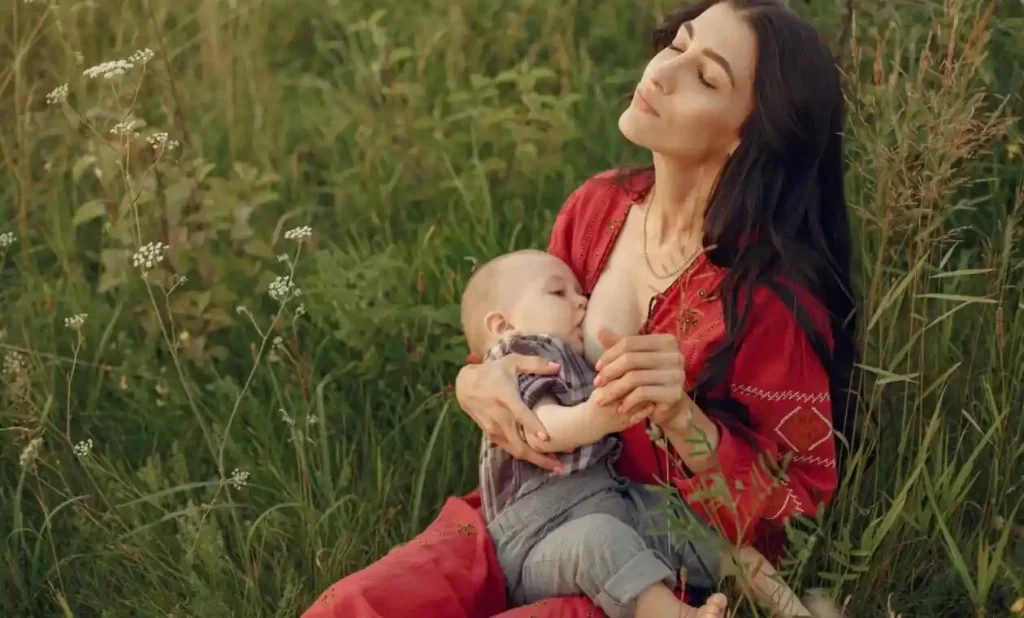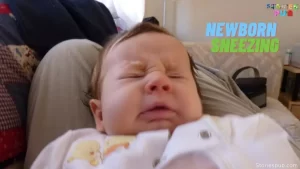
Are you a mom who’s breastfeeding and thinking about getting a tattoo? It’s an exciting idea! But before diving in, there are important things you should know. Balancing your wish for body art with keeping your baby safe is key.
This article helps you think about getting tattoos while breastfeeding. We’ll talk about safety, possible risks, and smart choices. We want you to feel informed and confident when considering a tattoo. Let’s explore what’s important for you and your baby while you’re breastfeeding and thinking about getting inked.
Overview of Tattoo Considerations for Breastfeeding Mothers
Breastfeeding mothers considering getting a tattoo have various important factors to think about before making their decision. Understanding these considerations is crucial to ensure both their own safety and the well-being of their babies.
From the safety of getting a tattoo while breastfeeding to potential risks and alternative options available, it’s essential for these mothers to weigh all aspects carefully.
Making an informed choice involves exploring the impact of tattoos on breastfeeding, the timing of getting inked, and even considering temporary tattoo options.
Ultimately, knowing and considering these factors empowers breastfeeding mothers to make the best decision for themselves and their babies.”
Safety Considerations: Tattoos During Pregnancy and Breastfeeding
Tattoos during pregnancy and breastfeeding raise valid concerns for mothers due to potential health implications for both themselves and their babies. Understanding the safety considerations surrounding tattoos during these periods is vital for informed decision-making.
Risk Assessment During Pregnancy:
- Immune System Sensitivity: During pregnancy, the body’s immune system can undergo alterations, potentially making it more sensitive. This heightened sensitivity might increase the risk of adverse reactions to tattooing, such as allergic responses or infections.
- Infection and Complications: Tattooing involves the use of needles and ink insertion into the skin, which can pose infection risks. These risks might be more concerning during pregnancy due to the body’s altered immune response, potentially affecting the well-being of the developing fetus.
- Chemical Exposure: The chemicals present in tattoo ink could raise concerns about their potential impact on the developing baby. Though limited, the possibility of these chemicals entering the bloodstream and potentially affecting the fetus is a worry for expecting mothers.
Breastfeeding Considerations:
- Tattoo Ink and Breast Milk: One of the main concerns during breastfeeding is whether tattoo ink components can pass into breast milk. The unknown impact of these chemicals on the nursing infant’s health prompts caution among breastfeeding mothers considering tattoos.
- Potential Risks: While direct research linking tattoo ink components to adverse effects on breastfed babies is limited, the potential risks remain a concern. Understanding the possible risks involved is crucial for mothers’ peace of mind and the well-being of their babies.
Professional Guidance and Consultation:
- Healthcare Provider Advice: Seeking guidance from healthcare professionals is essential for pregnant and breastfeeding mothers considering tattoos. Consulting with obstetricians, dermatologists, or other relevant specialists can offer personalized insights and guidance based on individual health circumstances.
- Risk Evaluation: Healthcare professionals can assist in assessing the potential risks associated with tattooing during pregnancy or breastfeeding. They provide information about the risks involved, considering the overall health condition of the mother and the potential impact on the baby.
Informed Decision-Making:
- Weighing the Risks: Mothers must weigh the potential risks against their desire to get a tattoo during pregnancy or breastfeeding. Understanding the uncertainties and making an informed decision that prioritizes the health and safety of both the mother and the baby is crucial.
- Alternative Options: Exploring alternative ways to express creativity or individuality without getting permanent tattoos is advisable. Considering temporary tattoo options or non-permanent alternatives can be a safer choice for mothers during these sensitive periods.
Factors to Consider for Breastfeeding Mothers Considering Tattoos

Breastfeeding mothers contemplating tattoos should take various factors into careful consideration to ensure their well-being and that of their nursing infants. Making an informed decision involves assessing several crucial aspects that directly impact their health and breastfeeding journey.
| Factors to Consider for Breastfeeding Mothers Considering Tattoos |
| Health and Safety Precautions |
| – Consultation with Healthcare Professionals |
| – Reputable Tattoo Artists and Studios |
| Impact on Breastfeeding |
| – Tattoo Placement Consideration |
| – Potential Influence on Milk Production or Flow |
| Healing Process and Aftercare |
| – Understanding the Healing Period |
| – Aftercare Compatibility with Breastfeeding |
| Potential Risks and Complications |
| – Infection and Allergic Reactions |
| – Impact on Baby’s Health |
| Informed Decision-Making and Alternative Options |
| – Considering the Risks vs. Desires |
| – Exploring Non-Permanent Alternatives |
Safety of Getting Tattoos During Pregnancy and Breastfeeding
Getting tattoos during pregnancy and breastfeeding requires careful consideration due to potential health implications for both the mother and the baby. Assessing the safety of tattooing during these periods involves evaluating specific precautions and concerns.
“Can You Get a Tattoo While Pregnant?” – Assessing Safety Precautions:
Consulting Healthcare Professionals: Healthcare providers generally advise against getting tattoos during pregnancy due to potential risks. Discussing this with obstetricians or dermatologists ensures an understanding the associated risks and necessary precautions.
Potential Risks During Pregnancy: The body’s immune system undergoes changes during pregnancy, making it more susceptible to infections. Tattooing involves needle insertion and ink, raising concerns about infection risks and potential complications that could affect the developing fetus.
Chemical Exposure Concerns: The chemicals present in tattoo ink are a worry during pregnancy. While direct evidence is limited, there’s concern about these substances entering the bloodstream and affecting the developing baby.
“Is It Safe to Get a Tattoo While Breastfeeding?” – Exploring Concerns:
Potential Impact on Breast Milk: A primary concern for breastfeeding mothers is whether tattoo ink components can pass into breast milk and potentially affect the nursing infant. Understanding the uncertainties regarding chemical exposure to the baby is crucial.
Healthcare Provider Guidance: Consulting with healthcare professionals is vital before deciding on a tattoo while breastfeeding. Obtaining personalized advice and understanding the possible risks involved ensures the safety of both the mother and the baby.
Limited Research on Direct Effects: There’s limited conclusive research on the direct effects of tattoo ink on breastfed infants. Despite this, caution and consideration of potential risks remain essential for mothers considering tattoos while breastfeeding.
Understanding the safety considerations and seeking professional guidance play a crucial role in making informed decisions about getting tattoos during pregnancy or breastfeeding. Evaluating the risks and being aware of the uncertainties surrounding tattoo ink components are essential for the health and well-being of both the mother and the baby.
Timing and Considerations for Getting a Tattoo While Breastfeeding
Deciding to get a tattoo while breastfeeding involves thoughtful consideration of various timing-related factors and specific considerations to ensure the health and safety of both the mother and the nursing baby.
Healing Process Timing:
- Duration of the Healing Period: Tattoos require a healing period, typically ranging from a few weeks to months, during which the skin recovers from the tattooing process. Understanding this healing timeline is crucial, as it may affect the mother’s ability to tend to the needs of her infant.
- Impact on Daily Activities: Healing tattoos might restrict certain activities, such as lifting or strenuous movements, which could be challenging for mothers caring for infants. Considering these limitations is important for ensuring the comfort and safety of both mother and baby.
Aftercare and Breastfeeding Compatibility:
- Following Aftercare Instructions: Proper aftercare is vital for the healing of a new tattoo. Mothers must adhere to aftercare guidelines provided by the tattoo artist to prevent infections or complications. Ensuring these aftercare measures align with the demands of breastfeeding routines is essential.
- Avoiding Contamination of Breast Milk: Tattoo aftercare products should not come into contact with breast milk to avoid any potential harm to the nursing infant. Ensuring strict hygiene measures during aftercare minimizes the risk of contamination.
Potential Impact on Breastfeeding:
- Tattoo Placement Consideration: Choosing the tattoo placement strategically to minimize potential interference with breastfeeding areas is advisable. Opting for areas less affected by nursing, such as areas not in direct contact with the baby during feeding, can be beneficial.
- Milk Production and Flow: While limited evidence suggests the potential impact of tattoos on milk production or flow, some mothers express concerns. Being mindful of these uncertainties is crucial for breastfeeding mothers considering tattoos.
Understanding the timing considerations and how they align with the demands of breastfeeding is crucial for mothers contemplating getting a tattoo. Ensuring the healing process doesn’t hinder caregiving activities, following aftercare instructions compatible with breastfeeding, and considering potential impacts on breastfeeding are essential factors for making an informed decision.
Risks Associated with Tattoos During Breastfeeding
Understanding the potential risks linked with tattoos during the breastfeeding period is crucial for mothers to make informed decisions regarding their health and their baby’s well-being. Several considerations highlight the risks associated with getting tattoos while breastfeeding:
Infection and Allergic Reactions: Tattooing involves skin penetration, making mothers more susceptible to infections due to potential exposure to bacteria or viruses during the tattooing process. Additionally, some individuals might experience allergic reactions to tattoo ink components, potentially affecting both the mother and the baby.
Impact on Breast Milk and Infant Health: Concerns persist about the transfer of tattoo ink components into breast milk, although conclusive evidence on the direct impact on the nursing baby is limited. However, potential exposure to these chemicals remains a concern for the infant’s health.
Tattoo Removal While Breastfeeding: Safety and Considerations
While contemplating tattoo removal procedures during breastfeeding, mothers need to be aware of the safety considerations and potential risks involved:
Safety Precautions and Consultation: Seeking advice from healthcare providers, particularly dermatologists or experts in tattoo removal, is crucial. They can provide insights into the safety measures and potential impact on the breastfeeding infant.
Risks and Impact on Breastfeeding: Tattoo removal procedures may involve methods like laser treatments or chemical applications, which could pose risks of skin reactions or other complications. Understanding these potential risks and their impact on breastfeeding is important.
Exploring Alternatives: Options for Breastfeeding Mothers
Considering alternatives to permanent tattoos provides safer options for expressing creativity or individuality:
Non-Permanent Alternatives: Opting for temporary tattoos or henna designs provides a creative outlet without the commitment of permanent ink. These options offer artistic expression while avoiding the risks associated with traditional tattoos during breastfeeding.
Other Art Forms: Exploring art forms such as body painting or wearable art offers alternative ways for mothers to express themselves without the permanence or potential risks associated with tattoos.
Conclusion
Making decisions about getting tattoos while breastfeeding involves a complex balance of personal expression, health considerations, and the well-being of both the mother and the nursing baby.
Throughout this exploration of the safety considerations, timing, risks, and alternatives associated with tattoos during breastfeeding, several crucial insights have emerged which we covered above.





